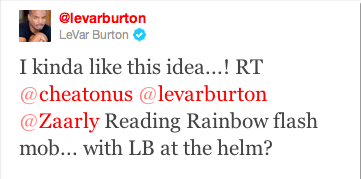Yesterday Google unveiled their new take on the social scene- Google+, the new uberproduct that will, hopefully, change the way you engage with the web. I won't go into a breakdown of what Google+ is and is not, mainly because I have yet to receive an invitation so evaluating a service I can't even see doesn't seem prudent. Yet the response generated by the announcement justifiably brought out some questions and concerns.
I would like to look at one particular opinion (provided via Daring Fireball, thanks!) espoused by Dave Winer on his blog, Scripting News. Here is a quote from his post:
The thing that makes Facebook great is that it incubated in the market with real users. It was made by real users. It was formed by actual use. One day at a time, one feature at a time, in public, every home run visible, and every mis-step.Well I can't disagree with the first statement. Facebook has, for better and mainly worse, made several changes in the midst of actual use by actual users. Not that they care much what people think, as every design change (and there are *so* many changes made all the time) is implemented via fiat and there is little opportunity to push for any significant deviations from what they set out to accomplish. There have been very minor kerfuffles over privacy issues, but those are almost always supported by the technology intelligentsia and, without fail, do not catch on with the larger public. I agree with Dave above, that Google+ has not been developed with real users and might suffer fatally from the echo chamber effect. But to say that Google will fail because it hasn't developed amidst user involvement is quite simply wrong. Despite the kudos from Dave above, Facebook has several issues that plague its use for me everyday.Products like the one Google just announced are hatched at off-sites at resorts near Monterey or in the Sierra, and were designed to meet the needs of the corporation that created it. A huge scared angry corporation. What little is left of the spark that created it in the first place is now used to being Number One, and wants to feel that again. It's being created to make that person feel better.
Here's the deal- Facebook isn't much more than over-glorified email. Sure, it used to be a wonderful way to connect with people over large geographic distances or among those with shared interests- but now so many other services have cropped up- including smart phones a la iPhone and Android- that Facebook is becoming about as useful as a yellowpages telephone directory. Twitter has, for all purposes, supplanted Facebook for my gathering of news and interesting links. Thanks to better data connections and front-facing cameras, I can Skype and connect with anyone. Photos are probably the only thing I use Facebook for, but even this has largely degraded as many of my friends cannot post anything close to how they live their real life, thanks in large part to corporate sniffing and HR managers who are willing to judge candidates solely on their posted pictures instead of basing an evaluation on the skills and expertise of the candidate presented.
Another problem I have with Facebook is that the very nature of the service means that I must share my 'profile' with anyone I select to be my friend. I'm currently finishing my PhD studies in Russian History and have given a lot of thought to how I'm going to use social technology to engage my future students. One issue many academics possess with Facebook is that they do not always want to share their thoughts and activities with any 'students' who might be their 'friends'. They make a choice- either they censor what they post or they simply don't allow students to friend them. This seems like hardly a choice to me, especially given the numerous advantages social networking technology can bring to the higher educational setting, but this issue alone has kept many I know from entering the brave new 'social' world.
Do I use Facebook? Sure- to communicate with older people who, understandably, are not hip to Twitter or Smartphones. However, even this is slowly falling away.
Now Google+ may suffer from all the same issues I have with Facebook. But I'm willing to check out a new, perhaps innovative way to engage in the ever popular 'social networking' scene, if only because Google already works well with the services I use. Because Facebook, as it stands now, holds very little appeal to me.
(Editors Note: Upon reflection I realize that my reference to Facebook being where I interact with 'older people' came across as insensitive and perhaps rude. This was not my intent when writing that statement- I should have extended my remarks to state that Facebook is the popular choice now because it is familiar and widespread, so that is why I continue to find value in its use. There are certainly numerous people, old and young, who use Twitter or have Smartphones- I just wanted to make the point that new social network platforms, providing a diverse set of services, are becoming more widespread and used by an increasing number of people.)






